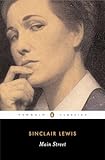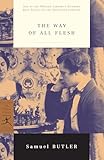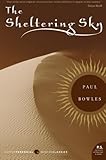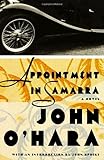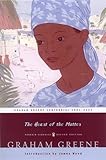Modern Library Revue is Lydia Kiesling’s irreverent, ongoing treatment of the Modern Library’s 100 best novels of the twentieth century. Lydia is a graduate of Hamilton College. She is an ardent book-lover and has spent the last two years working in the antiquarian book trade. The Modern Library project was recently born at her blog, Widmerpool’s Modern Library Revue.
 Of Human Bondage is a healing salve for life’s pernicious rash. It is a special shoe for the clubfoot of my mind. I have not always felt this way. First I hated the protagonist Philip Carey with what I now realize was the hatred you can only feel for people you think are nerds, who you then realize are just like you. I’m not some kind of sad weirdo or anything, but haven’t we all been teased by our schoolmates? Haven’t we all thought we were good at something only to learn that we sucked at it? Haven’t we all been sick with love for some unsuitable, puppy-kicking wretch? Haven’t we, I ask you? After this realization I got to appreciating Philip Carey’s modest charms, and I go back to them whenever I have a long train ride or an empty Sunday. So many epochs in orphaned, differently-abled Philip’s life to revisit! Let’s see some highlights:
Of Human Bondage is a healing salve for life’s pernicious rash. It is a special shoe for the clubfoot of my mind. I have not always felt this way. First I hated the protagonist Philip Carey with what I now realize was the hatred you can only feel for people you think are nerds, who you then realize are just like you. I’m not some kind of sad weirdo or anything, but haven’t we all been teased by our schoolmates? Haven’t we all thought we were good at something only to learn that we sucked at it? Haven’t we all been sick with love for some unsuitable, puppy-kicking wretch? Haven’t we, I ask you? After this realization I got to appreciating Philip Carey’s modest charms, and I go back to them whenever I have a long train ride or an empty Sunday. So many epochs in orphaned, differently-abled Philip’s life to revisit! Let’s see some highlights:
- Philip goes to live with his vile uncle, the Vicar of Blackstable. He only gets to eat the top of the hard boiled egg, and mustn’t play on Sundays.
- Philip goes to school, where the children mock his clubfoot, and the object of his bromantic affection spurns him.
- Philip goes to Heidelberg and drinks beer with a Byronic nitwit.
- Philip goes home and gets erotic with a cougar-type person, but it’s a disappointment. Women are a drag. Welcome to the world, chum!
- Now it’s time to join the middle-class grind, wherein you pay someone to work in their office. Boring!
- Philip’s off to Paris to learn painting! He wears soft pants and talks to drunkards!
- Philip is bad at painting. Chuck!
- Medical school, repeatedly.
- Philip falls in love with a trashy bit of stuff called Mildred. She’s just not that into him. She’ll do it with literally anyone except him. Misery!
- Philip spends his tiny inheritance on Mildred and the stock market. He sleeps on a bench.
- Philip goes hop-picking, an allegedly fun vacation for the impecunious. There he has relations with a veritable infant. She guesses she’ll marry him. Philip is happy! The sun is shining!
It’s a huge novel filled with embarrassing truths about the various stages of emotional development, about the people one meets and the ways one tries to kick free from society’s traces. You can imagine a sardonic arch to the author’s eyebrow as he wrote about young Philip’s vagaries. I read Of Human Bondage before I read anything else by Maugham, so when I read The Razor’s Edge shortly after I said to myself, “What is this malarkey?” Of Human Bondage is much earlier, and belongs to the tradition of Thomas Hardy and Samuel Butler and feeling bad and being Victorian, except that Maugham had a superior sense of humor.
The Razor’s Edge is later Maugham (1944), written when he was very famous and accustomed to fraternizing with society people and spiritual types. It has the taint of sophistication and of “California Chris” Isherwood. I die for Maugham always, especially the short stories, but his later work can seem rushed and less than fully-realized compared to Of Human Bondage. The Painted Veil, for example, reads as though he thought it up during a short lie-down and wrote it before dinner. It’s not a bad novel and I am certainly not calling William Somerset Maugham a hack; nonetheless, beside the massive achievement of OHB, some of the other things look a touch moth-eaten. Maugham himself wrote that he was “in the very first row of the second-raters,” which evidently made him sad. I think that assertion is way harsh. I just think that Of Human Bondage was his Ultimate Literary Jam.




